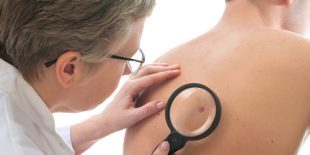#learnderm
-
Hair Loss (Alopecia) in Women
When we think of hair loss or pattern baldness—Alopecia—we often think of men. Most advertisements for hair loss treatment and hair regrowth products target men. Alopecia does not only affect men, however. Women are susceptible to sudden and ongoing hair loss, too. In fact, some of the things that cause male pattern baldness can happen to women. When Women Lose...
-
What is a Chemical Peel?
Chemical peels are not a foreign concept; they have been around for a long time and the term is a common one. It is a viable option for the treatment of many skin issues. If you are wondering whether you should consider it and are looking for more information, then here are some basics. How It Works A chemical peel...
-
Continue Skin Care in the Fall
The seasons are changing, once again. The temperatures will cool, the air will dry, and your skin will react. In fall, many find their skin becomes dry and they notice damage that they incurred over the summer. So, it is a great time to alter your skincare routine to deal with summer damage and get ready for winter. Fun in...
-
What is Molluscum Contagiosum?
Have you ever heard of Molluscum Contagiosum? It’s not a term heard in daily conversation, but it’s a common issue. Molluscum is a viral skin infection that causes noticeable bumps on the outer layer of skin. Fortunately, these bumps are harmless and generally cause no pain, but the virus can last for some time—from a few months to a few...
-
Skin Cancer Awareness: Squamous Cell Carcinoma
When it comes to good health, taking care of your skin is an important part. Knowing the types of skin cancer helps you and your skin stay safe. Of the common types, “Squamous cell carcinoma (SCC) is the second most common form of skin cancer” (WebMD), and so it is worth knowing a few things about it. The Basics SCC...
-
When Should You Get a Mole Checked?
When you have a suspicious mole, this may be a cause for concern. An abnormal mole could be a sign of skin cancer. To determine this, a consultation with a dermatologist for further evaluation to determine if the mole is benign or malignant is recommended. Indicators of an abnormal mole include asymmetry, an uneven border, a change in color, a...









